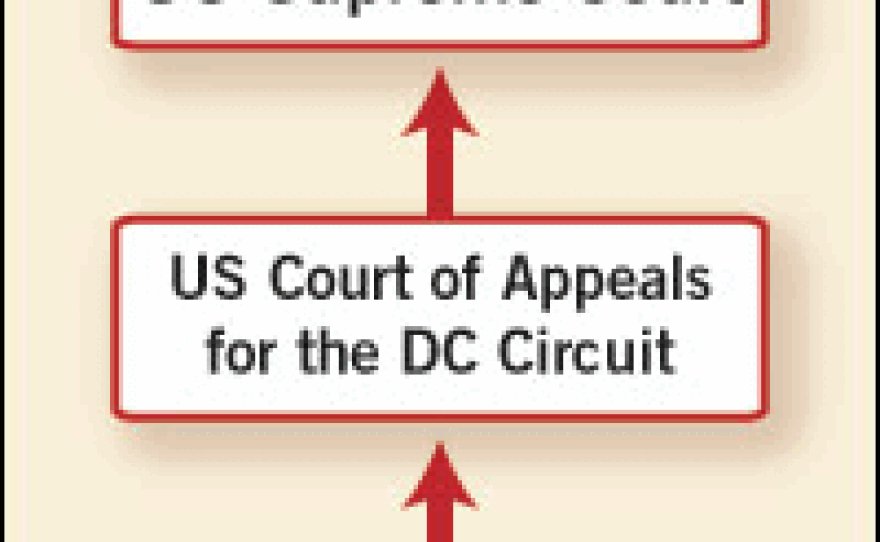
The Supreme Court ruled Thursday that foreign terrorism suspects held at Guantanamo Bay, Cuba, have a constitutional right to challenge their detention in U.S. civilian courts.
In a 5-4 ruling, the court also said the Bush administration's system for classifying detainees as enemy combatants does not meet basic legal standards.
Justice Anthony Kennedy, writing for the majority, said, "The laws and Constitution are designed to survive, and remain in force, in extraordinary times." He was joined by the court's four more liberal justices, Stephen Breyer, Ruth Bader Ginsburg, David Souter and John Paul Stevens.
This is the third time the justices have told President Bush that his plan for handling foreign terrorists violates the Constitution. This time, the president had Congress on his side. In 2006, the Republican-controlled Congress passed a law called the Military Commissions Act. It closed the courthouse doors to Guantanamo detainees and set up a new system for terrorism trials at the camp in Cuba.
The Supreme Court now says the 2006 law unconstitutionally suspended habeas corpus — a prisoner's right to challenge his detention. The ruling overturns a lower court decision that said the law was constitutional.
Chief Justice John Roberts and Justice Antonin Scalia each wrote a dissent on behalf of the court's more conservative bloc, which includes Justices Samuel Alito and Clarence Thomas. Roberts criticized his fellow justices for striking down what he called "the most generous set of procedural protections ever afforded aliens detained by this country as enemy combatants." Scalia wrote that the majority opinion "will almost certainly cause more Americans to be killed."
Congressional Democrats and human-rights groups hailed the decision. Senate Judiciary Committee Chairman Patrick Leahy called the ruling "a stinging rebuke of the Bush administration's flawed detention policies." Vincent Warren, director of the Center for Constitutional Rights, which represents many Guantanamo detainees, said, "The Supreme Court has finally brought an end to one of our nation's most egregious injustices."
On Thursday, President Bush said, "We'll abide by the court's decision. That doesn't mean I have to agree with it."
The ruling could resuscitate several court cases that have been on hold pending the high court's decision. There are nearly 200 Guantanamo detainee cases on the docket of the District Court in Washington, D.C. Those cases include claims from detainees who argue that they are being unlawfully held at the prison camp, that they are innocent, or that they were tortured during interrogations.
Chief Judge Royce Lamberth of the U.S. District Court in Washington, D.C., said the court's judges will meet in the coming days to decide how to proceed. "I expect we'll call in the lawyers from both sides to see what suggestions they have for how we can approach our task most effectively and efficiently," Lamberth said.
It is not clear what impact the ruling will have on the eventual fate of detainees. President Bush and presidential candidates Barack Obama and John McCain have all said they support shutting down Guantanamo, but there is no clear consensus on where the detainees should go. In the past, some were released without charge. Others were transferred to foreign countries. About 270 men captured in Afghanistan and Iraq are currently at the prison camp. Some have been there for more than six years.
The Associated Press contributed to this report.
Copyright 2022 NPR. To see more, visit https://www.npr.org. 9(MDAzMjM2NDYzMDEyMzc1Njk5NjAxNzY3OQ001))






